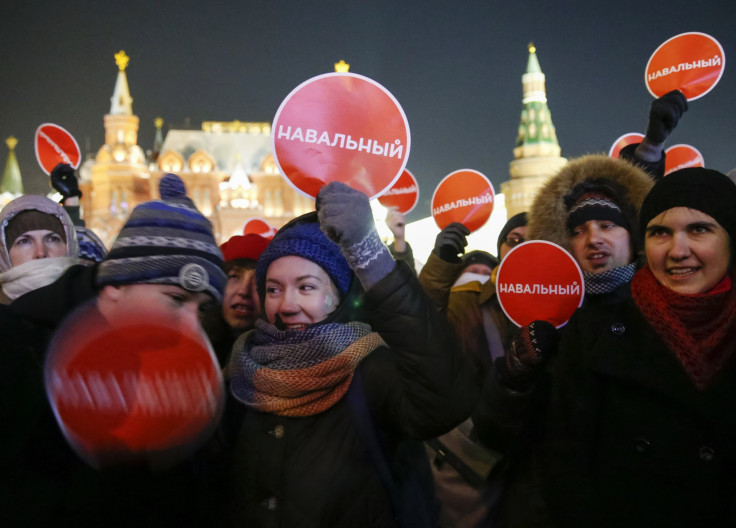Russia Freedom Of Speech: Social Media Program Looks For Protest Information Created By Pro-Kremlin Group

A program developed by a pro-government center in Russia is beginning to monitor social networks for any signs of meetings between people who hold anti-government views, the Moscow Times reported Tuesday, citing a report in the pro-Kremlin newspaper Izvestia. The head of the Center for Research in Legitimacy and Political Protest said the demonstrations and gatherings constitute “threats” to Russia.
"We are now facing a serious cyber threat -- the mobilization of protest activists in Russia by forces located abroad," center head Yevgeny Venediktov told Izvestia, according to the Times. "All this demands that we take active and urgent measures to create a Russian system of monitoring social networks and [develop] software that would warn Russian society in advance about approaching threats."
The program was dubbed Laplace’s Demon, after a thought experiment by Pierre-Simon Laplace in the 19th century that revolved around a demon who knew the location of all the atoms in the world, according to the Times. Once Laplace’s Demon finds relevant information, it gets passed on to Russian authorities. Those who use the program “would be able to learn about preparations for unauthorized rallies before information about them appears in the media," Venediktov said.
Social networks have become popular with people who oppose the government. Sites like VKontakte -- the Russian Facebook -- Facebook itself and Twitter are tools being used to organize protests and meetings. Venediktov was critical of Twitter, claiming the social media site didn’t take down “extremist content” after being ordered to do so by Roskomnadzor, a Russian media watchdog group.
"We carried out a study and found out that this particular social network is not only the leader among others in terms of the number of links to extremist content posted there but also fails to remove them on Roskomnadzor's demands," Venediktov said.
One of the concerns of pro-Kremlin figures, such as Dmitry Kurdesov of the pro-government For Security movement, is that opposition activists will provide disinformation on social media to throw off authorities.
"It is important that this development does not get into the heads of miscreants, who would send out wrong information," Kurdesov said. "It cannot be excluded that information about nonexistent rallies will be sent to the Interior Ministry to distract police from some serious action or protest at another location."
© Copyright IBTimes 2025. All rights reserved.






















